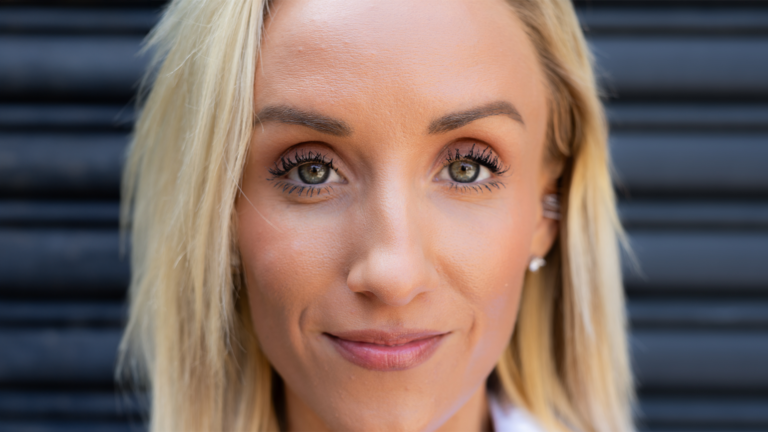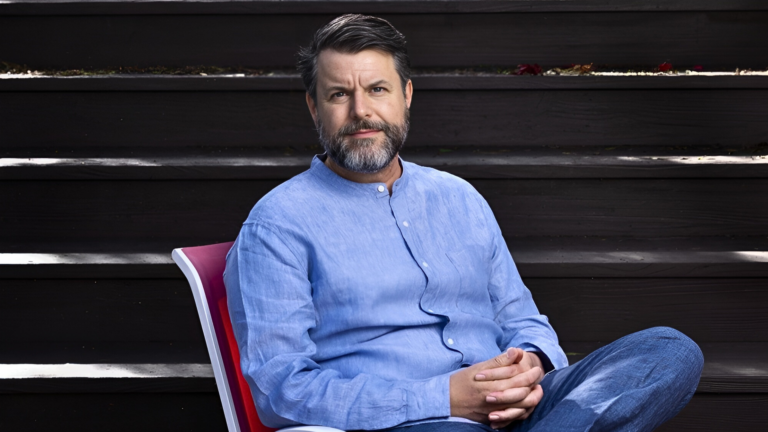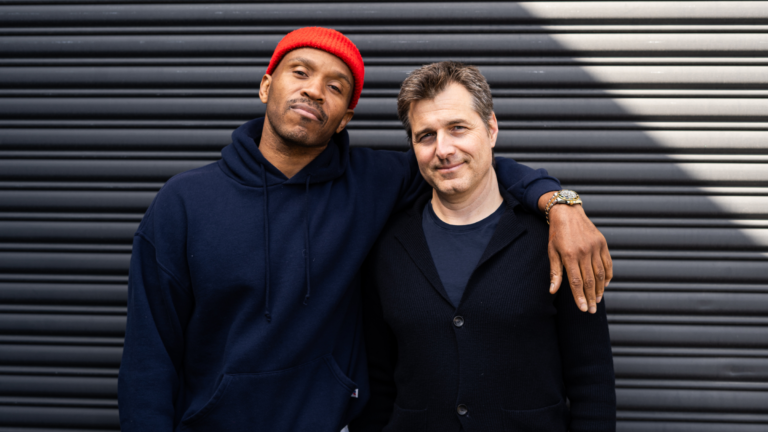This week’s conversation is with Dr. Marissa King, a Professor of Organizational Behavior at the Yale School of Management, where she developed and teaches a popular course entitled Managing Strategic Networks.
Over the past fifteen years, Marissa has studied how people’s social networks evolve, what they look like, and why that’s significant.
Her research has been featured in outlets such as The New York Times, The Wall Street Journal, The Washington Post, USA Today, U.S. News & World Report, Bloomberg Businessweek, The Atlantic, and on National Public Radio.
Marissa is also the author of a new book, titled Social Chemistry.
I wanted to speak with Marissa to learn more about her framework for strategic networks…
How do the nature of our relationships differ in our personal lives from the work setting, what can we do to improve them, and how has the pandemic impacted the nature of how these relationships will evolve in the future?
“Our relationships are necessary, but it’s also where joy comes from. In many ways, I would argue, even the purpose of living. It’s being a part of great community. And that humaneness is what it’s all about.”
In This Episode:
What was childhood like?
From as early as I can remember, I remember that feeling of like, I just don’t belong here. I don’t know what it was at that time, but there was something that’s like, this just isn’t a place that I fit in. My family had been there for eight generations. We were deeply embedded in the community, but it was clear to me that I wasn’t going to stay there, which was extraordinarily unusual.
What led her to study relationships?
My parents relationship was always strained. And I think that that contributed to that sense of like, I just don’t belong here, I want to get out, that there wasn’t a sense of a cohesive family unit. As long as I can remember, I’ve had that sense of like, I don’t know how relationships work and I just don’t understand it, and I think that that’s been driven a lot of my work.
How she thinks about relationships
Our relationships are necessary, but it’s also where joy comes from. In many ways, I would argue, even the purpose of living. It’s being a part of great community. And that humaneness is I feel like what it’s all about.
Why science and spirituality are both part of getting to the truth
Some of my greatest teachers are spiritual teachers, but some of my greatest teachers are also science. And that, as you talked about before, it’s like, why I find that so interesting, is it’s the pursuit of the quest for truth. And I think truth comes to us in lots of different ways. I would say as a scientist, we’re often trained to ask a question without … To find out what the answer is. And I would say, increasingly, I feel like I know what the answer is and I’m trying to use science to show it’s true. And that, I think, rubs some people the wrong way.
What interferes with relationships?
One of the biggest inhibitors of being present is fear. And human interaction is actually one of them, to me, the most interesting domains of life, because most people think that they’re better average at most things. They think they’re smarter than average, maybe they’re a better driver. But people routinely say that they’re worse at interacting with other people than the average person. And that sense of fear or that self-regulation about in a conversation, how am I coming across, all of that is what cuts off the ability to truly be present over with someone else. Because you’re focused on self-presentation.
The misconstrued part of relationships
This idea, if you translate this to the business world, what I would argue is that saying like we’re a family is actually oftentimes a disservice and contributes to … It can contribute to an extraction of work. On the employer side, this is great, but it actually increases the likelihood of burnout. Because if we’re family, I’m going to give you far more than I actually probably should, based on the contractual. I can trust you in the context of work, but it does not necessarily mean that I need to have an emotional relationship with a group. You need trust and you need the ability to speak up, but it doesn’t necessarily mean that we’re family. And the difference is that when you start talking about family, you’re mixing in emotion and affect and law. Work is an instrumental relationship at the end of the day. And I think where things get really messed up and complicated is when people mix the two, or it’s not clear, like where are the boundaries and what’s really happening here?
How “networks” impact the fabric of relationships
If we go back to this idea that our networks are just traces of interaction, we know from close to three decades of research that we can create a typology to understand three basic types. There are essentially three core elements of social structure, and I call these brokering networks, convening networks, and expansionist networks. And this typology, you can use to characterize your own set of relationships. You can also use it to understand how companies work and how to design teams. But also, you can think about, if I want to create global change, how do I need these three pieces to fit together? But the core of this is that it really can actually be distilled to these really basic elements.
The convening network
The convening network is really characterized by a dense web of interactions. If you imagine you’re holding a birthday party with everyone that you invite, pretty much already know each other, and that type of network is really characterized by an investment and deepen during social relationships. And the benefit of that type of structure is really good for execution. There’s a lot of trust, there’s a lot of reliability. The downside is that it can lead to groupthink or you essentially existing in an echo chamber. If you, for instance, live in the same place for a long period of time, you’re more predisposed. It can be any network, or if you embedded the same job. And so, this is what happens if we’re not intentional, is that we end up in these echo chambers of like-minded people who look like us and think like us.
Brokers
Brokers tend to be quite different and they tend to straddle different social circles. They may have spent a lot of time working in sports, but they may also have worked in operations, and to the extent that those two don’t normally come together. Brokers are really well positioned to be innovative, to be creative. They also tend to have more work life balance, because they keep their social lives and their professional lives separate. The biggest predisposition to building this type of network is something called high self-monitoring. It’s the personality characteristic that actually explains that most of what our network looks like. People oftentimes think it’s going to be extraversion or introversion, but this high self-monitoring tendency is actually the biggest predictor of what type of network someone looks like. High self-monitors tend to be chameleons. They are good on making impromptu speeches on things they know nothing about, which allows them to bridge these different worlds and be really effective agents of creativity.
Why do people fear other’s opinions (FOPO)?
If we think about it in the most basic way, that is really a sphere of a lack of belonging or a lack of social acceptance. It’s in some ways where I started on my own story, it’s like I felt like I never belonged. And that is a deep seated human need, because we need to be a part of something bigger than ourselves to survive. If you think going back to pre-modern times, we needed to evolve into social systems or groups that were beyond a certain size to survive in a way that was easier to shift or being able to have agrarian societies, moving beyond hunter-gathering. We had to create groups. And so, to be excluded from the group or not to be a part of it, actually, would kill me. And I think that we’re hardwired to still have that type of reaction of a lack of acceptance or exclusion, oftentimes feels like it can kill you.
What’s the key to fearing others’ opinions less?
I think the starting point is to realize that people like you more than you think they do. And that misperception about how we’re coming across is a starting point, because once you start to be like, alright, people actually like me more than I think they do, then that starts to reduce the fear. And what we know happens when fear is reduced, then we can actually engage more authentically with other people. And I think the more that we can get to being real with each other and engaging as humans, just having a conversation, without expectations, without contingencies, and just truly connecting, then you start to feel that feeling. Your cortisol level is lower, all that fight and flight responses, actually, physically start to diminish. And then you’re in this sweet space of like, oh, we’re really connecting.
How has the pandemic affected relationships?
One of the things I’ve seen in my own research is one of the biggest changes is our networks have actually contracted pretty significantly during the pandemic. During the pandemic, overall, people’s networks have shrunk by close to 16%, but that reduction in the size of our networks is almost entirely due to a reduction in the size of men’s network. Men’s networks have shrunk by more than 35%, which is roughly 400 or so people. We’re talking about acquaintances. I mean, women’s networks have hardly shrunk at all, so that’s one big change. The second biggest change is that we’re essentially like turtles, our networks have constricted and we’ve focused a lot more of our attention and energy on the people that are closest colleagues at the expense of our broader social world.


